MCQ ON ENDOCRINE GLANDS AND HORMONES class 12 for NEET | ENDOCRINE GLANDS AND HORMONES class 11 | MCQ ENDOCRINE GLANDS AND HORMONES with Answer | Check the below NCERT MCQ question for class 12 Biology based on the with Answers.
MCQ on ENDOCRINE GLANDS AND HORMONES class 12 Biology with answers were prepared based on the latest pattern.We have provided class 12 Biology MCQs question with Answers to help students understand the concept very well.
MCQ ON ENDOCRINE GLANDS AND HORMONES is useful for NEET / CSIR / UGC / CBSE / ICSE / AIIMS / EXAM / AFMC EXAM / STATE LEVEL MEDICAL EXAM 2022-23 , 2023-24
INTRODUCTION:-
Endocrine glands lack ducts and hence are called ductless glands.
Their secretions are called hormones.
The classical definition of hormone as a chemical produced by endocrine glands and released into the blood and transported to a distantly located target organ has current scientific definition as follows:-
Hormones are non – nutrient chemical which acts as intercellular messengers and are produced in trace amounts.
The endocrine glands and hormone producing diffused tissues/ cells located in different parts of our body constitute the endocrine system.
Pituitary ,pineal, thyroid, adrenal , pancreas , parathyroid , thymus and gonàds are the endocrine bodies in our body.
The pituitary gland is located in a Bony cavity called sella tursica and is attached to thalamus by a stalk.It is divided anatomically into an adenohypophysis and neurophysis.
Adenohypophysis consists of two portions ,pars distalis and para intermedia.
The pars distalis region of pituitary, commonly called anterior pituitary produces , growth hormone (GH) , Prolactin (PRL) , thyroid stimulating hormone (TSH),
adrenocorticotrophic hormone (ACTH) , luteinizing hormone (LH) and follicle stimulating hormone (FSH).
Pars intermedia secrets only one hormone called melanocyte stimulating hormone (MSH).
Neurohypophysis also known as posterior pituitary, stores and release two hormones called oxytocin and vasopressin ,which are actually synthesized by the hypothalamus and are transported axonally to neurohypophysis.
MCQ ON ENDOCRINE GLAND AND HORMONES class 12 for NEET
1. The posterior pituitary is under the direct neural regulation of the
(a) thyroid gland
(b) hypothalamus
(c) neurohypophysis
(d) prolactin
Ans (b) hypothalamus
2. Which inhibits the release of growth hormone from pituitary gland.
(a) somatostatin
(b) neurohypophysis
(c) thyroid
(d) none of the above
Ans. (a) somatostatin
3. It stimulates the synthesis and secretion of steroid hormones called glucocorticoids from the adrenal cortex.
(a) ACTH
(b) FSH
(c) LH
(d) ADH
Ans. (a) ACTH
4. It stimulates growth and development of the ovarian follicles in females.
(a) FSH
(b) LH
(c) ADH
(d) ACTH
Ans.(a) FSH
5.The hormone acts on the smooth muscles of our body and stimulates their contraction.
(a)MSH
(b) ADH
(c) FSH
(d) oxytocin
Ans.(d) oxytocin
6. Pineal secrets a hormone called
(a) oxytocin
(b) vasopressin
(c) melatonin
(d) prolactin
Ans.(c) melatonin
7. The hormone which plays a very important role in the regulation of a 24 – hour diurnal rhythm of our body.
(a) Oxytocin
(b) Vasopressin
(c) melatonin
(d) ACTH
Ans.(c) melatonin
8. Deficiency of iodines in our diet results in
(a) hypothyroidism
(b) gigantism
(c) acromegaly
(d) all the above
Ans.(a) hypothyroidism
9.The hormone play an important role in the regulation of the basal metabolic rate .
(a) ADH
(b) thyroid hormone
(c) parathyroid hormone
(d) ACTH
Ans. (b) thyroid hormone
10.Thyroid gland secrets a protein hormone called
(a) thyrocalcitonin
(b) FSH
(c) both a and b
(d) androgens
Ans. (a) thyrocalcitonin
11. The secretion of PTH is regulated by the circulating level of
(a) calcium ions
(b) androgens
(c) magnesium ions
(d) LH
Ans.(a) calcium ions
12.Thymus gland secrets the peptide hormones called
(a) FSH
(b) LH
(c) thymosins
(d) TSH
Ans . (c) thymosins
13. Which provides cell – mediated immunity.
(a) corpus luteum
(b) T- lymphocytes
(c) FSH
(d) LH
Ans.(b) T- lymphocytes
14.Atrial natriuretic factor (ANF) decreases
(a) pulse rate
(b) blood pressure
(c) heart beat
(d) dialysis
Ans. (b) blood pressure
15. The peptide hormones which stimulates formation of RBC.
(a) FSH
(b) LH
(c) oxytocin
(d) erythropoietin
Ans.(d) erythropoietin
ALSO READ:-
● YOU CAN WATCH BIOLOGY SIR Youtube channel
16. CCK cholecystokinin acts on
(a) pancreas
(b) gall bladder
(c) both a and b
(d) LH
Ans.(c) both a and b

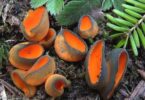
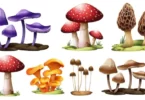
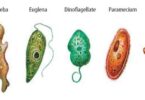
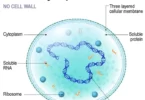
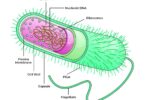
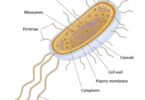
Leave a Comment